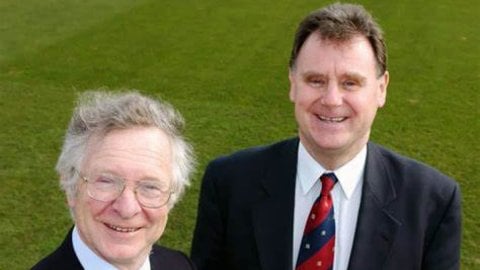
Frank Duckworth, co-inventor of cricket's DLS method, passes away aged 84 (Image Source: IANS)
International Cricket Council: Frank Duckworth, one of the pioneering minds behind the Duckworth-Lewis-Stern method, passed away at the age of 84. Duckworth’s contribution to the game has left an indelible mark, revolutionizing how rain-affected matches are determined.
Duckworth passed away on June 21 in England, according to a report in ESPNcricinfo.
The Duckworth-Lewis method, co-devised by English statisticians Frank Duckworth and Tony Lewis, emerged as a solution to one of cricket’s longstanding challenges: setting fair targets in rain-interrupted matches.

